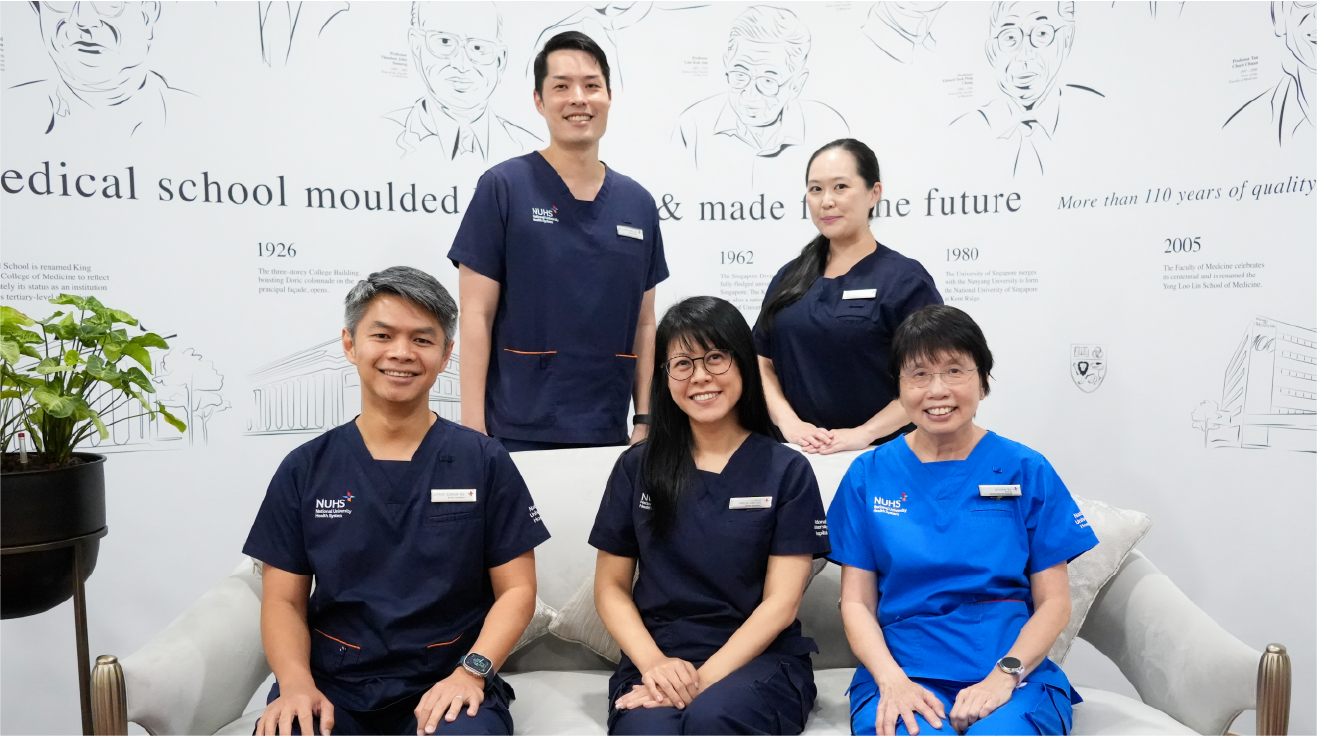SINGAPORE — Imagine your next specialist’s appointment at a hospital being a true partnership. Instead of being prescribed a care plan outright, your doctor seeks your feedback, discusses your progress and treatment goals, and co-designs a plan that fits your needs and preferences – which in some patients may mean reducing medication or cutting out unnecessary tests.
This is Appropriate Care (Apt Care) at the National University Hospital (NUH). It is about delivering evidence and value-based, patient-centred care that maximises health outcomes and quality of life, while eliminating inefficiencies and managing resources sustainably.
One of the key NUH Apt Care initiatives was a collaboration with the National University Cancer Institute, Singapore (NCIS), to introduce an appropriate care end-of-life pathway to cancer patients. Launched in October last year, the programme uses a multidisciplinary approach involving clinicians, nurses, and pharmacists to enhance end-of-life care. The goal is to help patients live as well as possible by reducing unnecessary medication and interventions, allowing them to focus on comfort and quality of life.
When a suitable patient is identified, their care team reviews the care plan to focus on the patient’s comfort and overall well-being. This tailored plan could involve reducing non-essential medications, re-evaluating the number of unnecessary outpatient appointments, and cutting down or discontinuing invasive procedures like blood glucose monitoring (BGM) pricks.
Between October 2024 and August 2025, 108 patients were enrolled in the programme which saw significant benefits:
- Average of 11 fewer vital sign checks and four fewer BGM episodes per patient, with some saving up to 81 vital sign checks and 52 BGM episodes during their hospital stay, leading to less disruption to the patients’ rest.
- Average savings of $60 per patient, with some saving up to $740, for the reduction in BGM tests.
- Average of two fewer outpatient appointments and three reduced oral medications per patient, reducing treatment burden.
Adj A/Prof Samuel Ow, Senior Consultant, Department of Haematology-Oncology, NCIS, and the project lead of the end-of-life programme, noted that feedback has been positive. "Patients have reported less pain and discomfort as a result of cutting down on non-essential procedures. By limiting consultations to only key ones, patients gain more time to spend meaningfully with their loved ones."
He added: "Our clinical staff have also benefited. The time freed up through streamlining tests and procedures allows them to devote more attention to their patients’ most critical needs. Our nurses have also reported greater job satisfaction from being empowered to customise care plans that truly prioritise the needs and well-being of our end-of-life patients."
Smarter glucose testing for inpatients
Another initiative at NUH targets unnecessary point-of-care blood glucose monitoring (BGM) for inpatients. A similar initiative was first implemented at Ng Teng Fong General Hospital in 2018 and at Alexandra Hospital in 2023, with best practices being adapted to each hospital’s workflows.
Piloted in two wards in September 2024 and now expanded, a new standardised workflow with clear criteria was introduced to empower nurses to safely reduce the frequency of BGM finger pricks in clinically stable patients.
Over the past three months, 87 patients in the programme had their average daily BGM finger pricks halved from four to two, without any significant increase in rates of hypoglycemia or hyperglycemia.
According to the project lead, Dr Ada Teo, Associate Consultant, Division of Endocrinology, Department of Medicine, NUH: "This initiative is a true win-win. By focusing on the right frequency of glucose testing, we can still rely on meaningful data to make informed assessments for our patients’ care plans. Patients who participated reported an improved treatment experience, as it reduced discomfort, pain, and their out-of-pocket costs.”
She added: “Our nurses felt the impact too - a recent survey of 78 nurses found that around 85 per cent of them expressed confidence in following the new workflow. Encouragingly, around 87 per cent felt empowered to reduce unnecessary testing with this project in place. Introducing a clear, evidence-based workflow can help to minimise unnecessary monitoring, allowing for more appropriate distribution of resources to facilitate patient-centred care.”
Building a sustainable future in healthcare
Beyond these initiatives, NUH working with its partners in NUHS to:
- Reduce duplicative test such as glycated haemoglobin (HbA1c), which may be duplicated by different care providers looking after the same patient;
- Minimise inappropriate medication for patients; and
- Consolidate appointments, which brings additional benefits of better care coordination
In summing up the Apt Care drive in NUH, Adj A/Prof Amelia Santosa, one of the co-leads of the Apt Care campaign at NUH and also Head and Senior Consultant, Division of Rheumatology and Allergy, Department of Medicine, NUH, said: “We are heartened to see the encouraging reception by both patients and healthcare colleagues from our early initiatives. With an ageing population and increasing number of patients with multiple medical conditions in Singapore, patients accumulate more appointments, medications and tests, which need to be purposefully consolidated. Hence, now more than ever, Apt Care is becoming a more critical concept for healthcare institutions to embrace and incorporate. Our ultimate objective is to continuously find ways to deliver care that is clinically effective and focused on patient-defined outcomes, while at the same time, promote greater healthcare value for everyone involved - from patients and their families to our healthcare staff and the hospital itself.”
To download the PDF version of the media release, click
here.


















